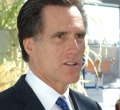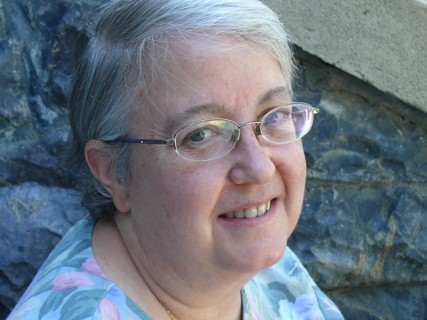
Mitt Romney's commitment to the Mormon faith is making headlines. Newt Gingrich has been a Baptist, Lutheran and now a Roman Catholic. Muslims are rooting for Ron Paul. Rick Santorum is in hot water after saying equality comes from Christianity only, not from Islam or eastern religions. Religion has become a hot topic when it comes to the presidential elections. SpokaneFAVS asked our contributors what they thought. Should a presidential candidate's religion matter to voters? Why or why not?

I suppose like most people, if I am really honest, I think, “yes, as long as their faith is similar to mine!” But, like most people, I also try to resist that thought and take a more high-minded approach to the question.
But the underlying issue is still there. We want our political leaders to be people of integrity, courage and values and of course we want to elect the people whose integrity, courage and values reflects our own! In our society and political discourse we seem to be increasingly unable to compromise for a larger common good, to see that other people's point of view may have some validity, to discuss political issues with resorting to personal insults. Perhaps as the level of vitriol in the political discourse rises we increasingly reflect the adage, “we get the government we deserve.” We claim we don't want politicians who use their faith to pander to voters but do we mean it?
If someone running for office represents a party or point of view that I don't agree with and he or she makes strong statements of faith it is easy to dismiss that person. If, on the other hand, they espouse a set of faith values that I agree with then they are clearly someone of integrity!
For many of us, including many sincere people who run for office, faith is at the core of who we are, it defines our sense of values and identity. But hopefully for all of us faith of whatever sort also includes compassion, the ability to listen with love, to forgive, to be open, to leave whatever judgment is necessary to God. To embrace these aspects of our faith, and to tell our elected leaders that we expect the same, in no way compromises our faith. To say that we expect that everyone in the public arena to treat others with respect is to call all of us to a higher practice of our faith no matter what that might be.
– Sr. Teresa Jackson

A candidate's religion certainly does matter to voters. Religion is, above all, a personal choice and may be indicative of a person's worldview. In that way, religious affiliation may offer insights regarding a person's character. I say “may” because who am I to say what convictions are deeply held and will be acted upon?
Having said that, there are many reasons for choosing to be part of a particular religion. A person may be following the religion of their family, e.g. the 'Cradle Catholic.' On the other hand, he or she may have chosen their religious affiliation based on perceived benefits of 'belonging to' a particular group.
Either way, voters do well to consider the religious affiliation of a potential president, or any elected official, as a way of gauging how that person will address the pressing issues of our day.
– M. C. Paul

Absolutely. I want to know the philosophical and theological underpinnings of a potential leader's character, way of thinking and value system. Worldviews are always at work in the formation of leaders; just as education, economics, gender and family background shape a person's life. All of this contributes to the person I am being asked to potentially vote for and who will assume one of the most powerful positions in the world.
One's view of God most often translates into how that person treats humanity. Your source of morality, its teaching and your commitment to exercising that system of belief will be at work in the decisions a president makes. What you think and believe matters to me.
– Eric Blauer

A presidential candidate's religion should not matter to voters, nor should it matter to the candidate. When making any decision the president will undoubtedly seek guidance from his or her religious beliefs (if he or she has any).
As long as the president acts in the best interest of the citizens of this nation it doesn't matter what he or she believes. Acting in the best interests of the citizens may go against the president's personal beliefs, and a good president will put aside his or her own preferences and heed thevox populi. Indeed, this should be true of every elected official, as they are elected into office to represent their constituents (a quality sadly lacking in most politicians these days).
– Thomas J. Brown

The notion that the electorate should be concerned about the fact that a candidate is Mormon — which, let's face it, is where this question comes from — or Muslim, or Jew, or Hindu, or Christian or atheist, is silly, as silly as it was when the electorate was concerned about the fact that John F. Kennedy was a Catholic.
The electorate's job is to judge the merits of the candidates on what we can perceive of their leadership style, philosophy of government, and their stands on the various important issues that are apt to come before the country during their terms in office.
There is however a sense in which a candidate's religion is relevant. If a Christian candidate clearly and obviously believed on religious grounds that Muslims and Jews do not deserve the full protection of the law, then that person's religion matters and I would under no circumstances support such a candidate regardless of other considerations. If a candidate believed on religious grounds that women should not be educated to the same degree as men, and should be barred from certain professions, then I would say that candidate's religion matters and I would not support such a candidate under any circumstances.
The point is, I have no interest in a candidate's particular religion, but I do have some interest in that candidate's interpretation of her religion, where it takes her, what conclusions she draws about people and life from her religion. I was quite worried, as a matter of fact, during the Reagan administration when our secretary of the interior opined that we needn't be worried about environmental laws because Jesus was coming back soon and then it wouldn't matter. “Whoa, Nelly,” I said, or words to that effect. This isn't just bad eschatology — an arguable point, by the way — this is bad eschatology leading to horrible public policy, a case of religious views interfering with the execution of a public trust.
To that extent, and to that extent only, I am interested in a candidate's religious views, even though I have no interest in any candidate's actual religion.
– Rev. Bill Ellis









If someone said my ‘religion’ doesn’t have any place in my public, life…I would question if it had any true impact on their business, private or relational life.
Rev. Ellis, thank you for saying what I had tumbling around in my head but couldn’t quite put into words.